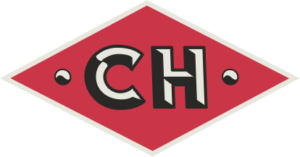Talking Blockchain with Neil Paschall

With Bitcoin getting so much press, many people regard cryptocurrencies and blockchain technologies as over-hyped. But there’s real fire behind the crypto-blockchain smokescreen. That’s why I asked blockchain expert Neil Paschall to speak with one of my Vistage groups about the subject.
Neil offers a workshop called Blockchain Technology & CryptoCurrency – Introduction to Transformational Change. And after listening to Neil, it’s clear there’s substantive fuel feeding the epic flames of blockchain.
After our session, I linked up with Neil to ask him about the one thing he’d like everyone to know about blockchain and cryptocurrencies. Watch and listen to our conversation. If you’d like to learn more, you can contact Neil directly at paschallcapital@gmail.com.
Finally, to help readers better understand the topic, I’ve compiled a short glossary of some key terms. (If you’re an expert on the subject, I welcome your feedback on anything that I’ve missed!)
And please drop me a line in the comments or contact me if you’d like to chat more about this disruptive technology. I’m always up for a robust conversation about what’s next!
Blockchain Glossary – Terms to Know
Bitcoin
Bitcoin is a cryptographic ledger known primarily for its cryptocurrency. Bitcoin is widely recognized as the first cryptocurrency ever created.
Blocks
Blocks are individual records that store data that cannot be altered. These blocks exist within the decentralized ledger and, as a whole, comprise the blockchain. Each new block replicates and contains all of the data from previous blocks.
Blockchain
Blockchain is a digital ledger of transactions that are distributed (and duplicated) across all of the computer systems that are part of the blockchain. At its core, it is a peer-to-peer technology that disintermediates, or removes the intermediary, in any situation it touches. Further, blockchains are purposefully designed to be: a) redundant and b) impossible – or highly difficult – to illicitly modify recorded information.
Coin
A digital asset built upon a blockchain.
Consensus
Consensus is the set of rules under which a blockchain network operates. These rules confirm both the validity of information written in blocks and any work that is performed.
Cryptocurrency
A digital currency based upon blockchain technology. It enables peer-to-peer payments without a third-party intermediary such as a bank.
Decentralization / Decentralized
Decentralization is a key concept in blockchain applications. It removes control and decision-making from a centralized entity and instead distributes control and decision-making across the entire blockchain network. The purpose is to create a higher level of trust and security by reducing the ability of any one individual or entity to exercise significant control over the network.
Distributed Ledger
Distributed ledgers store all of the information across the network in a secure and accurate manner using cryptography. This information is not stored in any one location and is accessed using keys and cryptographic signatures. A distributed ledger is one practical application of the concept of decentralization.
Ethereum
Ethereum is both a cryptocurrency as well as a blockchain application that allows for the creation of decentralized applications like smart contracts.
Gas
Gas refers to the cost necessary to perform a transaction on the Ethereum blockchain network. Essentially, it is a transaction fee designed to ensure that the network allocates computing resources in the most efficient way possible.
Hash
A hash is a means of taking an input of any length and creating an output of a fixed length. This is an overly simplistic definition, so to learn more watch this brief explainer video.
Initial Coin Offering (ICO)
This is similar to an Initial Public Offering (IPO). However, instead of shares in a company, digital assets called “tokens” are sold. Tokens are more flexible than stock shares in that they can be configured in a variety of ways to provide services to the holder.
Mining
Mining is the process through which users compete to solve rigorous cryptographic puzzles and add blocks of verified transactions to the blockchain. In exchange for their efforts, tokens are provided to the miners.
Nonfungible Token
Nonfungible tokens are digital representations of assets that establish and publicly verify proof of ownership. These digital data units are unique and stored on the digital ledger.
P2P (Peer to Peer)
P2P refers to a decentralized network of individual users (devices) that connect to store and share information with each other. Each user acts as an individual server.
Proof of Work (POW)
Proof of work allows individuals to add blocks to the blockchain by solving mathematical puzzles.
Smart Contract
A smart contract occurs when a contract is embedded into computer code. The concept was first introduced by Nick Szabo in 1994. Within the context of a blockchain, a smart contract is a computer program stored therein that can be used to automate the transfer of tokens between users based upon agreed-upon conditions (a.k.a. contract terms). For example, a smart contract could be used to automatically issue refunds to an airline traveler that purchased trip insurance if their flight is canceled or to track ownership and facilitate the transfer of any real or personal property.
Token
A token is an intrinsic part of blockchain applications and rides on its surface. Further, like many parts of the blockchain universe, its flexibility allows it to be used in a variety of ways. (e.g., tokens can be used to track products in a supply chain, allow access to an application, verify identity, etc.)
Token Marketplace
A general term used to refer to the largely unregulated “wild, wild west” of the current blockchain/cryptocurrency market.
Wallet
A blockchain wallet enables users to store, transfer, and convert their cryptocurrencies.
TRANSCRIPT
Chad Harvey (00:05): Hey everybody. Chad Harvey here with Neil Paschall, Vistage chair and blockchain cryptocurrency extraordinaire expert. Neil worked with one of my Vistage groups this past week. We wrapped an excellent session with him, titled Blockchain Technology and Cryptocurrency and Introduction to Transformational Change. Neil, this is a voluminous subject. It’s very complex, but it’s also critically important, which is why we’re talking today. I know we could spend three hours on this subject, but in a limited amount of time, what’s the one thing that you’d like everybody to know about blockchain technology and cryptocurrency.
Neil Paschall (00:43): Well, Chad, thanks for having me. And this technology is developing at such a rapid pace. It’s developing about twice as fast as the internet developed. And so I’d just like to raise this on the radar screen of people. It’s developing under the radar and it’s time for people to start paying attention to this because the changes are going to be transformational and it could have an impact on what everybody’s doing.
Chad Harvey (01:17): I absolutely agree. I think when we talk about crypto and blockchain technology, a lot of people get confused and they think of it just in terms of the currency, but there’s a lot more going on there, both on the finance perspective, as well as on the application perspective, that’s really important.
Neil Paschall (01:37): Very good point. Ultimately, many of the things that we deal with today are going to be tokenized. Securities are going to be tokenized, real estate is going to be tokenized. And so it’s really important that people start paying attention to this.
Chad Harvey (02:00): Yeah. I’ll tell you what, Neil. I like to keep these relatively short, but let’s dig into that one thing right there, because I think there’s a lot of people out there that don’t understand what a token is. And when you talk about tokenization or having something tokenized, what does that mean? Because that’s really important.
Neil Paschall (02:18): Well, a token is something that’s created in a distributed ledger system. And a cryptocurrency is a type of token, but there are other types of tokens as well, like nonfungible tokens. And when I say something like real estate could be tokenized, if a real estate project were tokenized, then it could be sold in a fractionalized way so that I could have the same percentage of my net worth tied up in a big successful real estate project as Sam Zell has a percentage of his worth tied up in that same project. So it will level the playing field for people and provide additional opportunities.
Chad Harvey (03:08): Fantastic. That’s a great explanation. I appreciate that. Thanks so much for your time today. And this is, again, I think this is super critical information everybody needs to be more informed about. So if people want to reach you directly, they can email you at paschallcapitol@gmail.com. Correct?
Neil Paschall (03:27): That’s correct. Thanks, Chad.
Chad Harvey (03:28): Yep, absolutely. Thank you, Neil.
